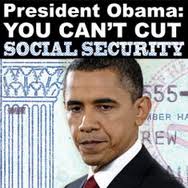It was a nice turn of phrase that matched the mood of the candidate in 2008.
But that all changed with the reelection. The personal tensions started earlier and rapidly worsened. They fought in private and in the open. There was plenty of simmering, and often a high boil. The team of rivals rarely achieved a spirit of cooperation and seemed more inclined to bitter, dogged rivalries.
There was a new actor in the campaign drama: Jim Messina. Obama convinced Messina to leave his political father, Sen. Max Baucus, by calling him the day after Hillary Clinton dropped out of the Democratic primary contest. The sales pitch was neither about hope nor change. “You’re really going to get to run a business,” Obama told Messina.
Seven days later, Messina was in Chicago with control of the campaign staff and its budget. On his first day at work, David Plouffe handed him a list of half a dozen people.
“Fire them,” Plouffe said.
So he did. Messina would introduce himself to bemused staffers and ask them to visit his office for a second or two. That was the last conversation they would have with him at campaign headquarters. Other staffers might be unhappy at taking the ax to new coworkers; Messina was not one of them. He was in Chicago to bring some order to an operation that had outlived the structure of the primaries. If that meant he was unpopular, so be it.
Just five months after President Obama signed his historic health-care reform into law, he shared his armored limo with Messina in Seattle, where they had traveled for an event to help reelect Sen. Patty Murray.


